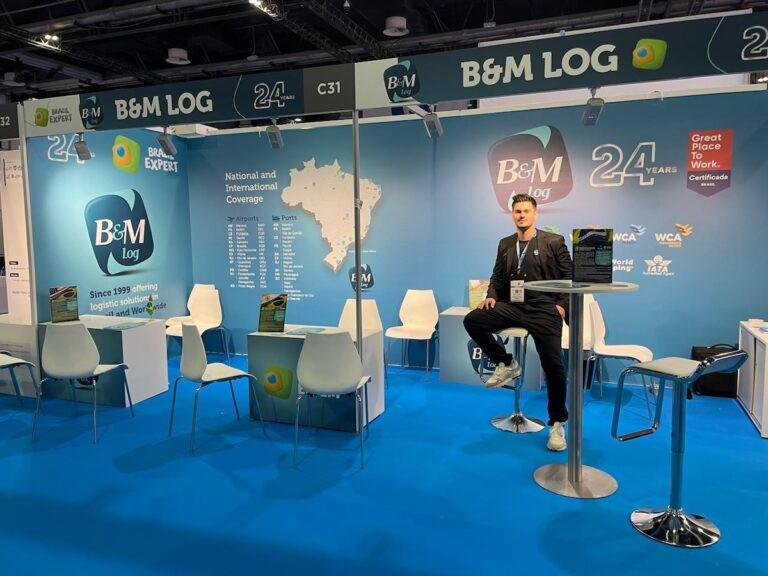Brazil’s significant role as both an importer and exporter has made it a highly sought-after destination in the logistics industry. The country’s abundance of resources contributes significantly to its economic vitality, with all 27 states actively engaged in international business. From Rio Grande do Sul to Santa Catarina, Paraná, and São Paulo, several key states play pivotal roles in the country’s economic landscape.
For instance, Manaus hosts major electronics plants like Foxconn, while also serving as a hub for motorcycle production. These strategic locations underscore the diverse industrial capabilities spread across Brazil, further solidifying its importance on the global stage.
However, operating in Brazil presents significant challenges due to its vast size and infrastructural limitations. Suppliers located in the southern regions often face logistical hurdles when sending shipments to airports like São Paulo Airport (GRU). This inland transportation can be costly and time-consuming, with journeys lasting two to three days, exacerbated by the country’s road infrastructure issues.
With this backdrop over the past two decades, Brazil has emerged as a major player in the airfreight business, capitalising on its vast resources and strategic geographical position. Since December 2022, Brazilian cargo agents have gained authorisation to operate international cargo transfer. This means they can accept cargo from abroad, allowing it to pass through and be shipped abroad, mirroring the consolidation practices seen in several airports in the United States and Europe.
“We’ve experienced a significant evolution in our airfreight services over the years. Initially focused solely on ocean shipments in 1999, we recognised the growing importance of air transportation and subsequently became IATA certified,” Rodrigo Sperandio, International Business Manager at BM Log, stated.
“This marked the beginning of a highly successful journey into airfreight, supported by our dedicated team of over 30 individuals exclusively focused on this aspect of our business.
“Recently, Brazil introduced its new Customs Control Tower (CCT) system for air shipments, prompting us to transition away from the outdated system.
“The CCT system has revolutionised operations, offering simplified manifesting processes and streamlined communication with Brazilian customs.
“Not only does it enhance security and traceability, but it also significantly accelerates processes, reduces paperwork, and minimises bureaucratic hurdles, thereby improving overall efficiency.”
Expansion opportunity
Truck transportation remains the primary mode of transportation in Brazil with the growth of intermodal transportation holding immense importance for optimising the country’s infrastructure.
Despite lacking a comprehensive railway system, Brazil boasts a significant existing network dating back to the early 20th century. Unfortunately, much of this infrastructure has fallen into disrepair, necessitating extensive rehabilitation rather than mere maintenance. This poses a considerable challenge for Brazilian companies, thereby maintaining the dominance of inland truck transportation as the preferred mode of freight movement.
By leveraging a variety of transportation modes such as road, railway, water and air, Brazil can enhance efficiency and productivity while curbing the notorious “Brazil Cost” associated with this sector.
“There’s a noticeable expansion in response to the increasing demand for quicker deliveries, a trend particularly prominent for high-value goods like perishables, Dangerous Goods (DGR), automotive parts, and pharmaceuticals,” Sperandio stated.
“Given the stringent time requirements in the air cargo sector, there’s a pressing need for swift transportation.
“Moreover, there’s an observable improvement in the development of domestic air shipments, indicating a growing focus on enhancing local airfreight services within the country.”
Digital efficiency
Digitalisation is revolutionising logistics operations in Brazil, enhancing efficiency and effectiveness throughout the supply chain. The adoption of advanced technologies enables comprehensive control over every aspect of logistics management. Through software integration and real-time tracking, companies can monitor their shipments closely, ensuring timely delivery and balanced financial management.
Many Brazilian companies are investing significant time and resources into expanding their IT departments to leverage the benefits of digitalisation fully. This shift towards sustainable practices is evident, with a heightened focus on reducing carbon emissions.
Companies are increasingly adopting alternative fuels and optimising transport routes for improved energy efficiency, reflecting a commitment to environmental responsibility alongside operational excellence.
“Airfreight plays a pivotal role in bolstering the logistics sector, serving as a vital mode of transport for our country,” Sperandio added.
Projections regarding air transport are shaped by various factors, including sustainability efforts, the surge in e-commerce, the integration of automation technologies, and the augmentation of loading capacity.
“Each of these elements will significantly influences the trajectory of airfreight and its impact on the broader logistics landscape.



